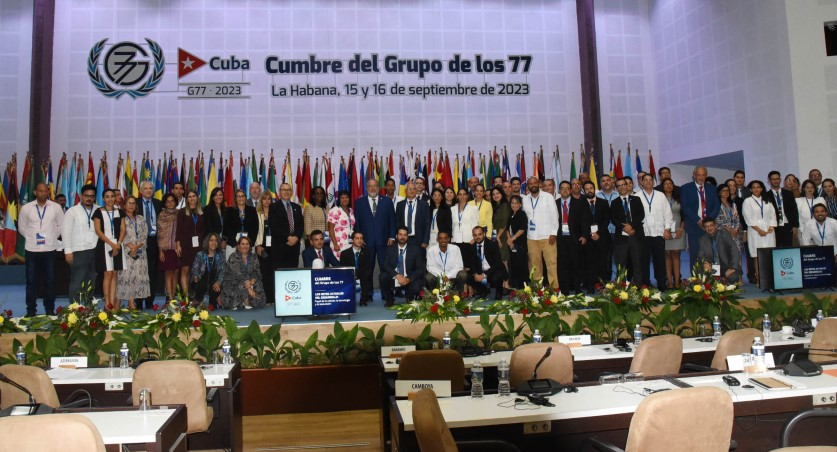
Havana, September 16 (RHC)-- The Summit of the Group of 77 concluded Saturday in Cuba with the adoption of a declaration that defends the claims of developing countries.
After two intense days of work in the capital's Palacio de Convenciones, a hundred delegations from the bloc agreed on the importance of science, technology and innovation to boost the nations of the South.
At the closing of the event, the host Prime Minister, Manuel Marrero, stressed that for a few days Havana became the capital of the world and a center of hope.
The head of government thanked the participants for their valuable contributions and invited them to continue working on the proposals put forward.
Marrero affirmed that all the countries of the South have demonstrated that, as the leader of the Cuban Revolution, Raúl Castro, said, "yes, it was possible, yes, it is possible and it always will be possible".
The Group's final declaration highlights the importance of research and development and technology transfer in the field of human health, taking into account the increase in emerging and re-emerging communicable and non-communicable diseases, including their risk factors.
It also recognizes the role of science, technology and innovation in identifying and addressing the challenges posed by climate change, the effects of which disproportionately impact developing countries.
Furthermore, it reiterates the need for an effective response to the urgent threat of climate change, especially through increased financing, technology transfer and capacity building based on the priorities of developing countries.
During the event, African, Latin American and Asian dignitaries reaffirmed their solidarity with Cuba and also expressed their gratitude for the support and collaboration offered by the island, despite the difficulties caused by the blockade imposed by the United States on this nation.
The G77 and China is the most diverse group in the multilateral sphere, with 134 member states representing two thirds of the membership of the United Nations and 80 percent of the world's population (Source: Prensa Latina).

